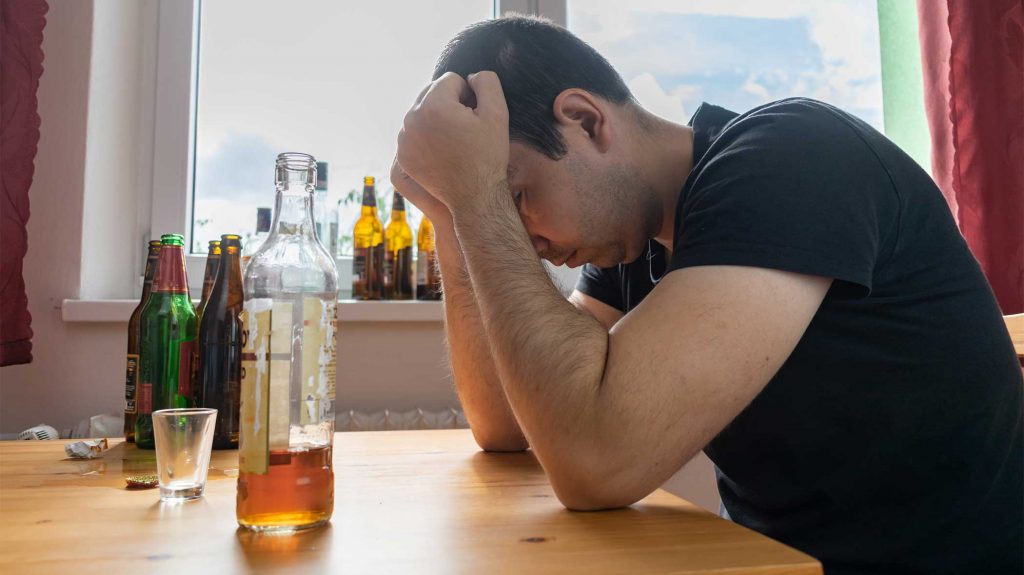According to the CDC, binge drinking is the single most common, expensive, and deadly pattern of alcohol consumption in the United States. And for many, it’s a difficult pattern of behavior to break.
But why do so many people binge drink so often, and what can you do to kick the habit?
3 Reasons Why People Binge Drink
Every person is different and those who develop problematic relationships with alcohol do so for reasons that are just as unique. But there are some common patterns.
- Social Drinking
Especially common among college students and other young adults, social drinking is all about cutting loose. People may binge drink or use a large amount of alcohol for a confidence boost, to reduce inhibitions, or to fit in with the crowd.
Unfortunately, however, social drinking has a dark side—hangovers, blackouts, alcohol poisoning, sexual assault, and sexually transmitted diseases are widespread consequences.
- Drinking To Cope
Self-medication with alcohol is common among those with high levels of daily stress, chronic pain, and mental health issues ranging from depression and anxiety to PTSD and others.
Unfortunately, while alcohol can relieve pain and stress for a short period of time, it isn’t sustainable. Alcohol abuse can quickly damage both your mental and physical health, leaving you worse off than you were before.
- Compulsive Drinking
Frequent binge drinkers, and even those who start heavy drinking, don’t necessarily have alcohol addiction.
However, it’s likely just a matter of time until excessive drinking stops being a choice or an escape. It can develop into a physical and mental necessity, or something you have to do in order to function and avoid the harsh effects of alcohol withdrawal.
7 Ways To Stop Binge Drinking
Making any lifestyle change can be challenging, and it will likely require commitment, motivation, and time to follow through. But with small steps and support from your loved ones, there are ways you can stop binge drinking for good.
- Educate Yourself
It can be easy to forget that alcohol is a drug that causes devastating long-term effects if misused. Some potential damaging effects of alcohol may include:
- depression
- anxiety
- premature aging
- brain damage and behavioral changes
- liver disease and cirrhosis
- heart disease
- high blood pressure
- osteoporosis
- cancer
Learn to recognize the signs of alcohol dependence and take a hard look at what chronic alcohol abuse can do to your body, mind, and soul.
- Identify & Avoid Your Triggers
A trigger is something that you associate with habitual binge drinking. This could be a particular bar, scene, group of people or even a specific alcoholic beverage.
Sometimes just staying away from places or situations that lead to binge drinking is enough to avoid it altogether.
- Choose Between Moderation & Abstinence
Each person is different. While one person might be able to cut out binge drinking and still enjoy a beer a few times a week or a mixed drink out with friends, another person might not be able to stop after taking that first sip.
Neither case is better or worse than the other. It’s all about knowing yourself, deciding on the right solution for you, and then following through.
- Find Support
Reach out and connect with friends, family, or others who you trust and who don’t misuse alcohol to have a good time.
Be open and honest and invite these connections to check-in and help out with some positive peer pressure. This way you’ll have someone to reach out to if you’re struggling with cravings, or if you need someone to go with you to social events to make sure you don’t slip.
- Do Something Else
Isolation, boredom, and stress can all lead to alcohol use. Try to find something else that you can do instead to replace your problematic drinking habits.
This could be cooking, mountain biking, running, painting, reading, traveling, or countless other healthy hobbies just waiting for you to explore.
- Reward Yourself
Positive reinforcement involves rewarding yourself for reaching important milestones like a weekend without binge drinking.
Rewards can be anything from seeing a movie to getting lunch at your favorite spot or buying something off your wish list.
The fact that you earned it will make your success taste that much better.
- Consider Professional Care
If you’ve tried to stop drinking alcohol in the past but haven’t been able to, consider seeking professional help.
Professional treatment options include:
- medical detox programs, which can help you manage short-term withdrawal symptoms
- inpatient or outpatient addiction treatment programs
- medication-assisted treatment to reduce cravings for alcoholic drinks and improve your mental balance
- Alcoholics Anonymous and other peer support groups for alcohol use disorder
If you or a loved one struggles with substance abuse, you don’t need to face this challenge alone. To learn about how we care for alcohol addiction and all other substance use disorders, please contact us today.
Sources:
Centers for Disease Control and Prevention (CDC) — Binge Drinking is a serious but preventable problem of excessive alcohol use
Harvard Health — 11 ways to curb your drinking
National Institute on Alcohol Abuse and Alcoholism (NIAAA) — Understanding Alcohol Use Disorder
Substance Abuse and Mental Health Services Administration (SAMHSA) — Medication-Assisted Treatment (MAT)


